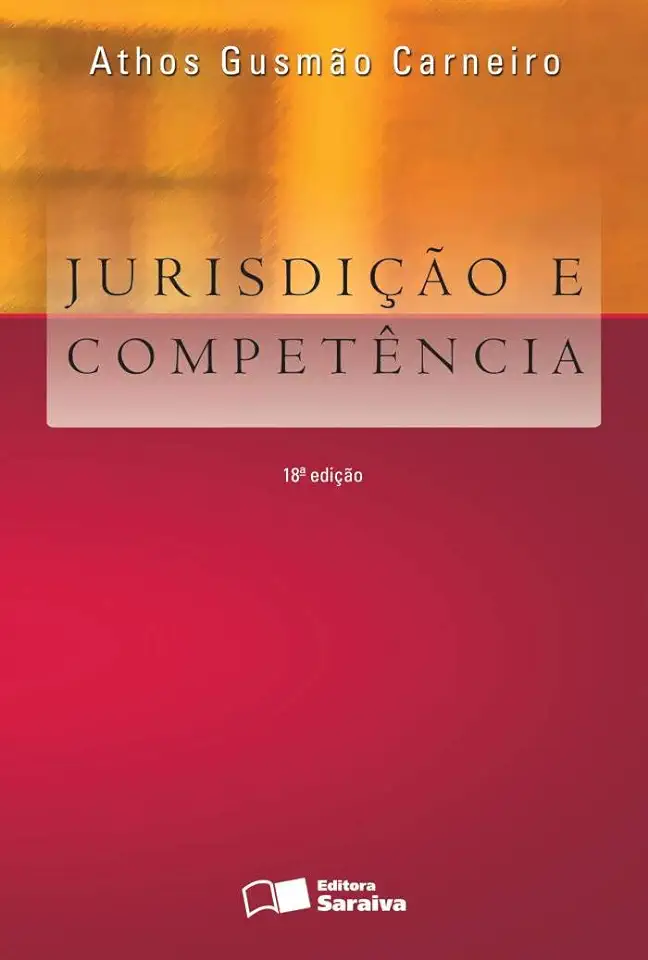
Jurisdiction and Competence - Athos Gusmão Carneiro
Jurisdiction and Competence: A Comprehensive Guide to the Principles and Practice of International Law
Introduction
In today's interconnected world, understanding the principles and practice of international law is more important than ever. Whether you're a lawyer, a businessperson, or simply a global citizen, having a solid grasp of jurisdiction and competence can help you navigate the complex legal landscape of the international arena.
What is Jurisdiction and Competence?
Jurisdiction and competence are two fundamental concepts in international law that determine which courts or tribunals have the authority to hear and decide a particular case. Jurisdiction refers to the power of a court or tribunal to exercise its authority over a person, property, or subject matter, while competence refers to the specific legal issues that a court or tribunal is authorized to decide.
Why is Jurisdiction and Competence Important?
Understanding jurisdiction and competence is essential for several reasons. First, it ensures that disputes are resolved by the appropriate courts or tribunals, which helps to maintain the rule of law and prevent forum shopping. Second, it protects the rights of individuals and entities by ensuring that they are not subject to the jurisdiction of courts or tribunals that lack the authority to hear their cases. Third, it promotes cooperation and comity between nations by ensuring that disputes are resolved in accordance with internationally recognized principles of law.
The Principles of Jurisdiction and Competence
The principles of jurisdiction and competence are based on several key concepts, including:
- Territoriality: This principle establishes that a court or tribunal has jurisdiction over acts or events that occur within its territory.
- Nationality: This principle establishes that a court or tribunal has jurisdiction over its own nationals, regardless of where the acts or events in question occur.
- Protective principle: This principle establishes that a court or tribunal has jurisdiction to protect its own interests or nationals, even if the acts or events in question occur outside its territory.
- Universal jurisdiction: This principle establishes that certain crimes, such as piracy and war crimes, are so serious that they can be prosecuted by any court or tribunal, regardless of where they occur.
The Practice of Jurisdiction and Competence
The practice of jurisdiction and competence involves several steps, including:
- Determining the relevant rules of jurisdiction and competence: The first step is to identify the rules of jurisdiction and competence that apply to the case at hand. These rules can be found in treaties, customary international law, and national legislation.
- Establishing jurisdiction: Once the relevant rules of jurisdiction and competence have been identified, the next step is to establish that the court or tribunal has jurisdiction over the case. This can be done by demonstrating that the acts or events in question occurred within the court's or tribunal's territory, that the parties to the case are nationals of the court's or tribunal's country, or that the case falls within the court's or tribunal's protective principle or universal jurisdiction.
- Determining competence: Once jurisdiction has been established, the next step is to determine whether the court or tribunal has competence to decide the specific legal issues in the case. This can be done by examining the court's or tribunal's statute or charter, as well as any other relevant rules of law.
Conclusion
Jurisdiction and competence are essential concepts in international law that play a vital role in ensuring the fair and efficient resolution of disputes. By understanding the principles and practice of jurisdiction and competence, you can navigate the complex legal landscape of the international arena with confidence.
Order Your Copy Today!
Jurisdiction and Competence is a comprehensive guide to the principles and practice of international law. It is an essential resource for lawyers, businesspeople, and global citizens alike. Order your copy today and start your journey to understanding the complex world of international law.
Enjoyed the summary? Discover all the details and take your reading to the next level — [click here to view the book on Amazon!]